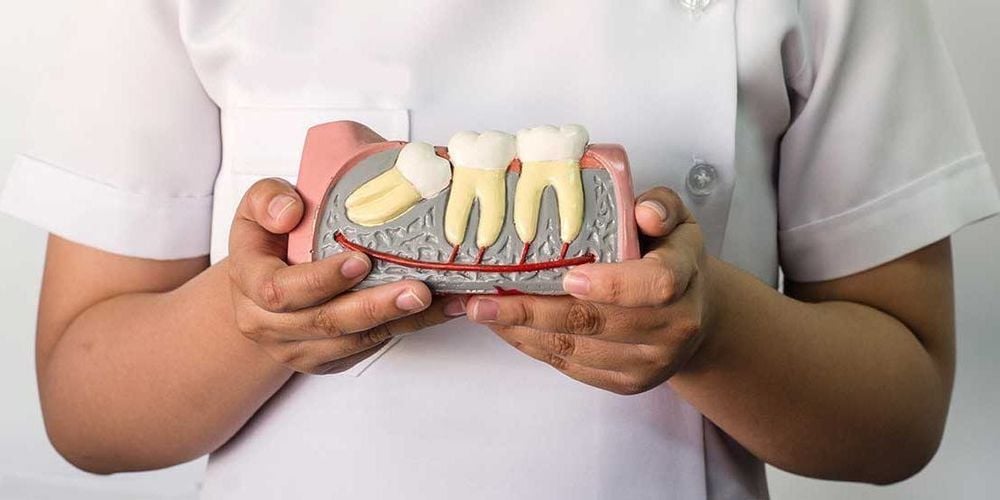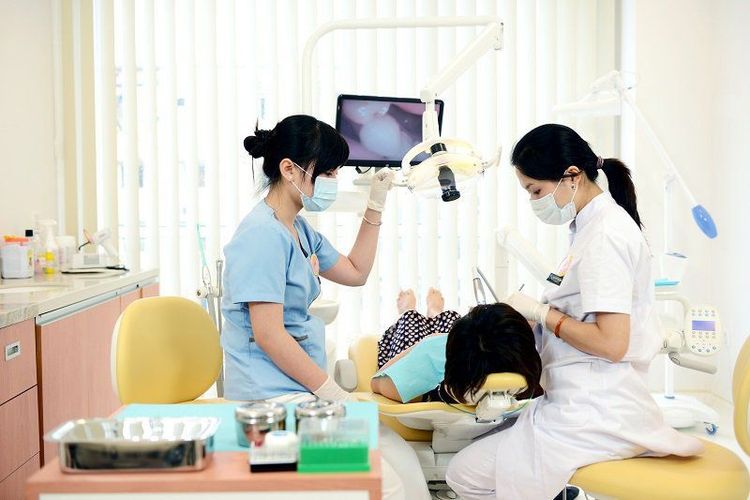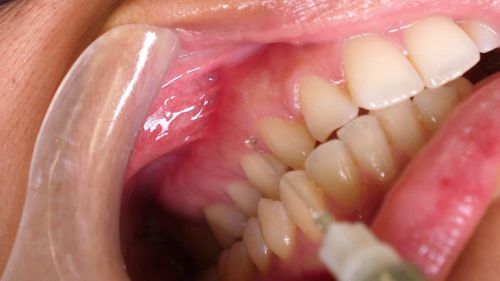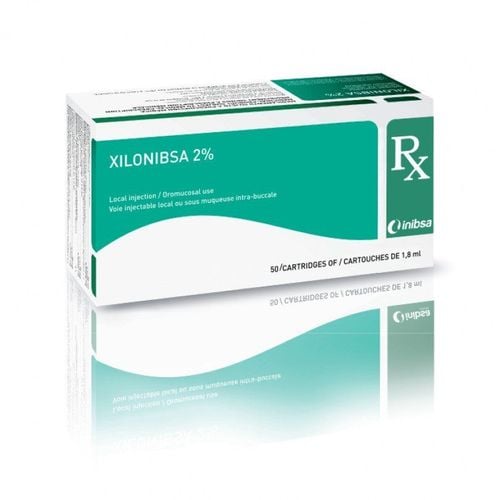This is an automatically translated article.
The article was professionally consulted by BSCK I Nguyen Duc Tho - Anesthesiologist - Anesthesiology Department - Vinmec Central Park International HospitalWisdom teeth are always an annoying problem because it not only affects the jaw structure but also causes pain. Therefore, most people with wisdom teeth choose to have their wisdom teeth removed. Depending on the case, the patient will be sedated or sedated.
1. What is the effect of anesthesia or anesthesia when removing wisdom teeth?
Wisdom teeth are the name for tooth number 8 and also the last molar to erupt on each side of the jaw. Wisdom teeth only appear in adults between the ages of 16 and 30.
Because it is the last tooth to grow in the roof of the mouth, there is often not enough space for wisdom teeth to grow normally, so they often grow misaligned, crowded and pushed against other teeth, causing the patient to feel swelling and pain. , uncomfortable.
Then it will be necessary to have a tooth extraction technique to remove the wisdom teeth from the jaw. Wisdom tooth extraction is not done arbitrarily, but requires a doctor's prescription. The extraction of teeth can affect the nerves, so there will be painful sensations, especially when wisdom teeth grow in. Therefore, the use of anesthetic or anesthetic when removing wisdom teeth is necessary.
The main purpose of anesthesia or anesthesia when removing wisdom teeth is to help reduce discomfort and pain in the patient. After anesthesia or anaesthesia, the patient does not feel pain or discomfort, which facilitates the doctor's manipulations to take place faster and easier, and at the same time to limit unwanted complications. can happen.

Răng khôn mọc lệch có thể ảnh hưởng đến các răng khác
2. When is anesthesia or sedation needed for wisdom tooth extraction?
Tooth extraction is actually just a simple dental technique. Usually, so that the patient does not feel pain, the doctor only needs to numb the area where the tooth will be extracted. However, there are certain cases where a doctor needs to consider giving anesthesia or sedation.
2.1 Where anesthesia is needed Most patients who are healthy and do not have heart problems or blood pressure when having wisdom teeth removed will be numbed. The doctor will apply or inject anesthetic into the area where the tooth will be extracted and wait a few minutes for the medicine to take effect. The wisdom tooth extraction process will then proceed as usual.
2.2 Cases requiring anesthesia Although it is a simple technique, in certain cases, patients will be considered for anesthesia when wisdom teeth are extracted. The purpose of this is to ensure that the extraction process is safe and does not affect the patient's health.

Người bệnh được gây mê
Some cases need anesthesia when removing wisdom teeth such as:
● Patients with psychological problems of fear, unstable nerves, severe stress... need to be anesthetized when removing wisdom teeth to ensure During tooth extraction, the patient did not have any negative reactions.
● The patient is allergic or has a history of allergy to local anesthetics. Thus, anesthesia is the only method so that the patient does not feel discomfort and pain when removing wisdom teeth.
● Complicated cases of tooth extraction such as impacted wisdom teeth or extraction of many wisdom teeth at the same time. The anesthetic will help stabilize the patient's psyche and ensure the effectiveness of the wisdom tooth extraction process.
● Patients with chronic diseases such as high blood pressure, heart disease, asthma, diabetes, kidney failure,... In these cases, the doctor will appoint an anesthetic and at the same time the tooth extraction will also be performed. should be done very carefully to avoid complications.
3. Anesthesia or anesthesia when wisdom teeth extraction is safer?
Anesthesia or anesthesia when removing wisdom teeth is safer than most people worry. In fact, experts say that anesthesia or anesthesia is safe and does not adversely affect the health of the patient.
Anesthesia and anesthesia when removing wisdom teeth help patients feel comfortable and do not have to feel pain. Comparing the two methods, it can be said that anesthesia when removing wisdom teeth will be more effective because of its long-term effects. Many complicated and prolonged tooth extraction cases, if only anesthesia is given, can be interrupted because anesthesia has only a short-term effect.
However, if anesthesia is performed, the patient will need a recovery time to wait for the anesthetic to wear off, and this technique also requires a team of highly qualified medical professionals to ensure that the anesthesia lasts. out safe and effective. On the contrary, with anesthesia when removing wisdom teeth, after completing the extraction process, the patient can go home immediately because he is completely awake.

Khám chuyên khoa Răng Hàm Mặt tại Vinmec
Every technique has certain advantages and disadvantages. Patients should consult and consult a doctor to consider whether it is best to choose anesthesia or anesthesia when removing wisdom teeth.
Customers can directly go to Vinmec Health system nationwide to visit or contact the hotline here for support.
SEE ALSO:
Anesthesia during tooth extraction surgery How to extract wisdom teeth misaligned? Is it okay to have a tooth extracted?














